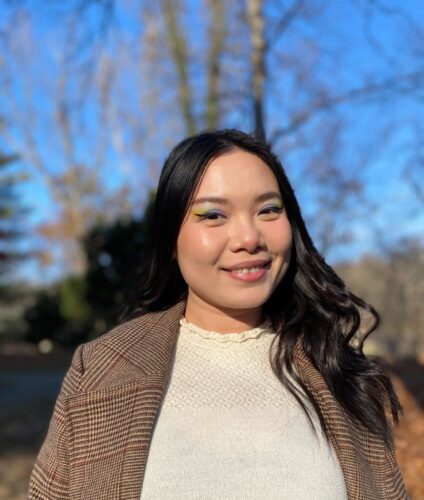How censorship changed the landscape of China’s queer audio dramas
Censorship poses significant challenges for ‘boy’s love’ audio drama in China, but the subculture has proved to be resilient and adaptive.

For a long time, online audio drama was a rare medium for unadulterated queer expression in China, where overt depictions of same-sex relationships are banned from TV and films. But as China intensifies its scrutiny of online content, creating and publishing LGBTQ-themed fiction podcasts have become increasingly difficult, according to experts and fans.
The erasure of Chinese audio dramas centered around “boy’s love” (BL), also known as dānměi 耽美, started in 2021. That year, the country’s internet watchdog, the Cyberspace Administration of China (CAC), launched “Operation Qinglang” (清朗行动 qīnglǎng xíngdòng), a nationwide campaign aimed at creating a “clear and bright” internet environment. In the following years, as Operation Qinglang evolved into a sprawling and long-lasting censorship mechanism targeting various online activities in the country, danmei audio dramas, most of which are adaptations of danmei novels, fell under scrutiny.
Labeled by officials as a form of “vulgar culture,” the genre was lambasted in the summer of 2021 by major party newspaper Guangming Daily, which took specific aim at its “negative impact on teenagers.” In September that year, the National Radio and Television Administration (NRTA), which controls broadcast media and also has power to regulate online audio and video, held a conference in Beijing to condemn BL adaptations and highlight alleged problems inside fandom communities formed around danmei audio drama.
Reduced visibility and heightened nationalism
Fearing regulatory punishment, some major audio streaming platforms were quick to act. One of them was MissEvan. Founded in 2014, the website gained recognition among China’s queer community for its large selection of audio novels that tell stories of same-sex relationships. The site cultivated a user base of young women aged between 20 and 30 years old.
However, in response to “Operation Qinglang”, MissEvan took down a handful of danmei series and shortened or deleted male-male sex scenes before putting them back online. Dramas affected by the change include Set the Prairie Ablaze, which depicts a same-sex romance between a doctor and a tattoo artist, and Sunset Avenue, which falls into a danmei subcategory characterized by male pregnancy.
In the meantime, MissEvan altered its interface to reduce the visibility of queer content, while making efforts to produce and promote dramas featuring heterosexual couples. On its app, heterosexual content is now featured in prominent locations, despite its low volume and popularity compared to danmei. In posters and thumbnails for BL dramas, only one male figure is displayed, rather than a same-sex couple.
MissEvan also banned the tag “pure love” (纯爱 chúnài), which was long used for everything related to danmei. This means that users can now only find BL dramas on its service by searching their titles directly, instead of through platform recommendations.
Creatives in the world of danmei dramas are also feeling the pinch. “MissEvan is super cautious. It required that a kiss scene should not last more than two seconds. We have no choice but to self-censor,” AL, a BL audio drama producer, told The China Project. (She asked for anonymity in order to speak freely, as did other producers and listeners quoted in this article.)
She added that it has also become paramount for BL audio dramas to appear nationalistic. “If there’s any issues related to nationalism in the drama, we have to actively show our stance, which must be consistent with the state’s position,” AL said.
Keeping the queer space alive
With the new restrictions, fans of danmei audio drama have found ways to adapt. Ellen, a 22-year-old university student, told The China Project that she had installed an extension on her browser which enables her to search for audio files across various platforms. This helps her better locate uncensored BL audio dramas uploaded covertly and anonymously by other users, who usually don’t include certain keywords in descriptions to avoid automatic detection.
Although file-sharing can be frustratingly complicated for danmei consumers, this hasn’t stopped fans from keeping the community alive. TC, a 18-year-old college student, said that she was willing to share not only the files themselves, but also the techniques required to securely relay content.
“To avoid potential blocking on open platforms such as Weibo, we have developed tactics for safely and indirectly sharing resources,” she told The China Project. One of the countermeasures is to share links to external cloud storage services, and to prevent these links from getting blocked, “we cleverly insert emojis within the URL, so that other users can effortlessly remove them and locate the resources,” she added.
Imagining a queer utopia
Despite tightening restrictions, the world of BL audio drama remains diverse and inclusive. As a non-visual media form, audio drama allows participants to conceal their real identities and personal information. This holds particular appeal to sexual minorities who prefer to express themselves in a relatively private and safe environment.
BL audio drama’s resilience partly stems from its amateurish nature. Compared to other BL media formats such as manga and animation, which have high barriers to entry, audio drama is friendly towards amateurs and prioritizes collaboration. Many danmei producers start out as fans before making the leap to creating audio dramas themselves.
Typically, fans of specific audio dramas join online groups and communicate with staff to learn more about their work. Then, they might be offered opportunities to participate in the creation, often starting as assistants and later taking on more important roles.
And for those who accidentally stumble into the world of danmei, audio drama offers a rare opportunity to learn about a group of people whose stories are often shunned and ignored in Chinese mainstream media.
“I never thought there would be love between two characters of the same sex,” M, a straight, male voice actor, told The China Project. “But it provides us with a new perspective. I consider this as progress for society.”

Other LGBTQ Stories:
Uncertainties abound after landmark Hong Kong ruling on same-sex partnerships (South China Morning Post)
According to Hong Kong’s court ruling, the government has two years to draw up “core rights” of same-sex couples, but advocates of LGBTQ+ rights in the city are concerned that changes will not be comprehensive and may be delayed.
Chinese NGOs focusing on gender and sexuality seek public funding during Tencent’s 99 Giving Day (WeChat)
Several gender- and sexuality- focused NGOs based in mainland China received public donations during Tencent’s annual online public philanthropy campaign held from September 1 to 9. These NGOs have diverse focuses in their works, ranging from supporting rural women, eliminating gender violence, and AIDS testing. Some other NGOs are notably absent from this year’s 99 Giving Day because of government intervention.






